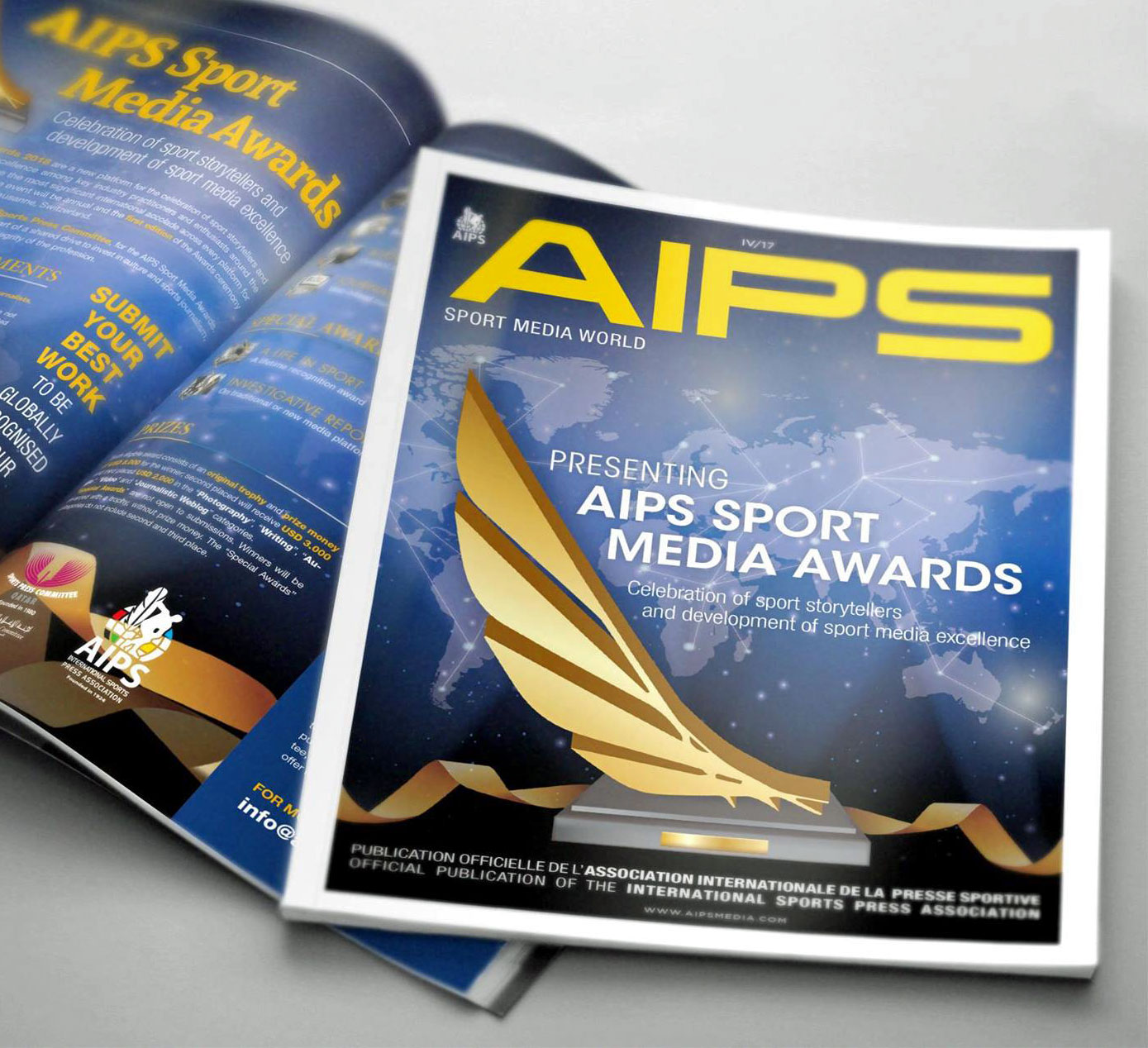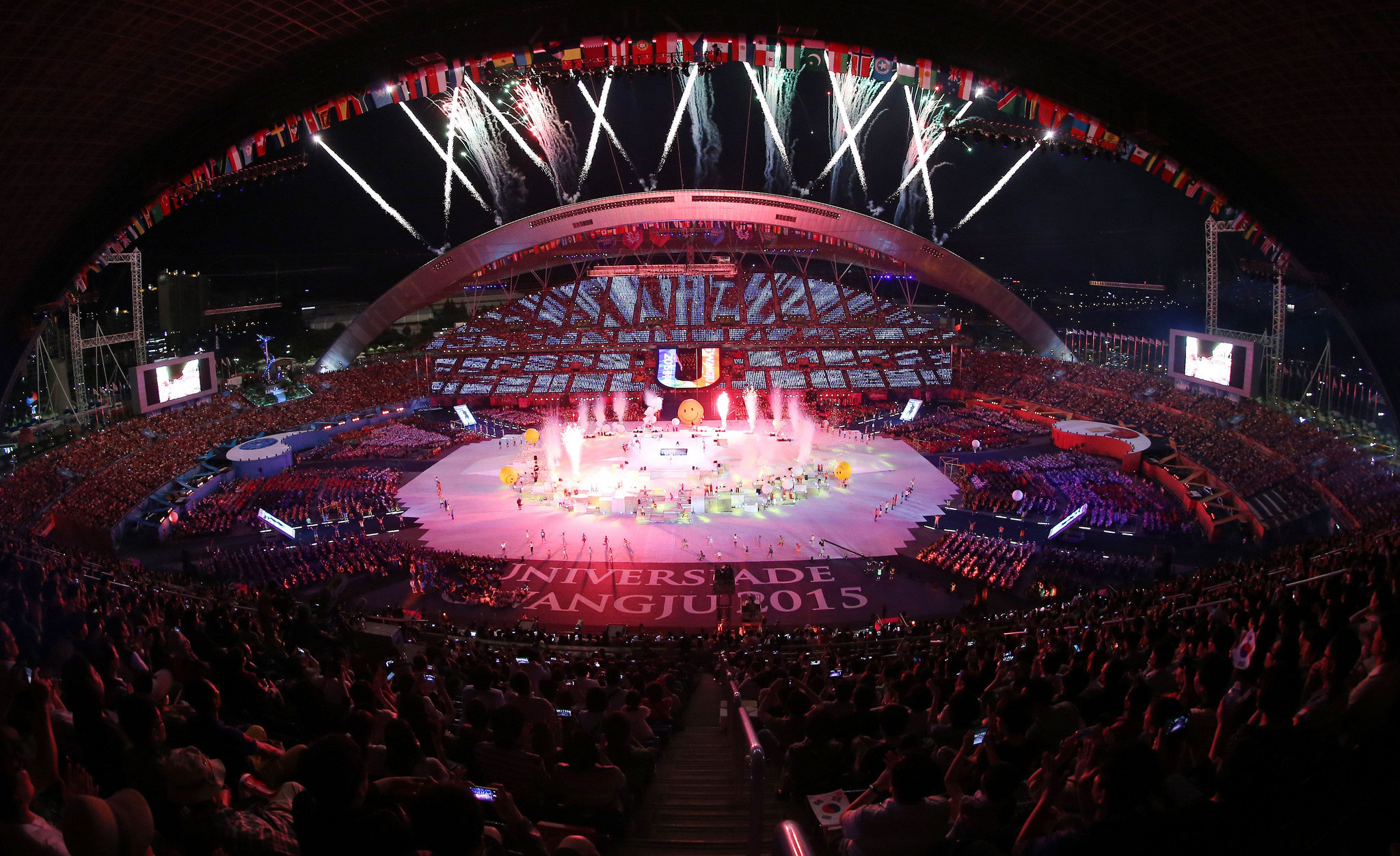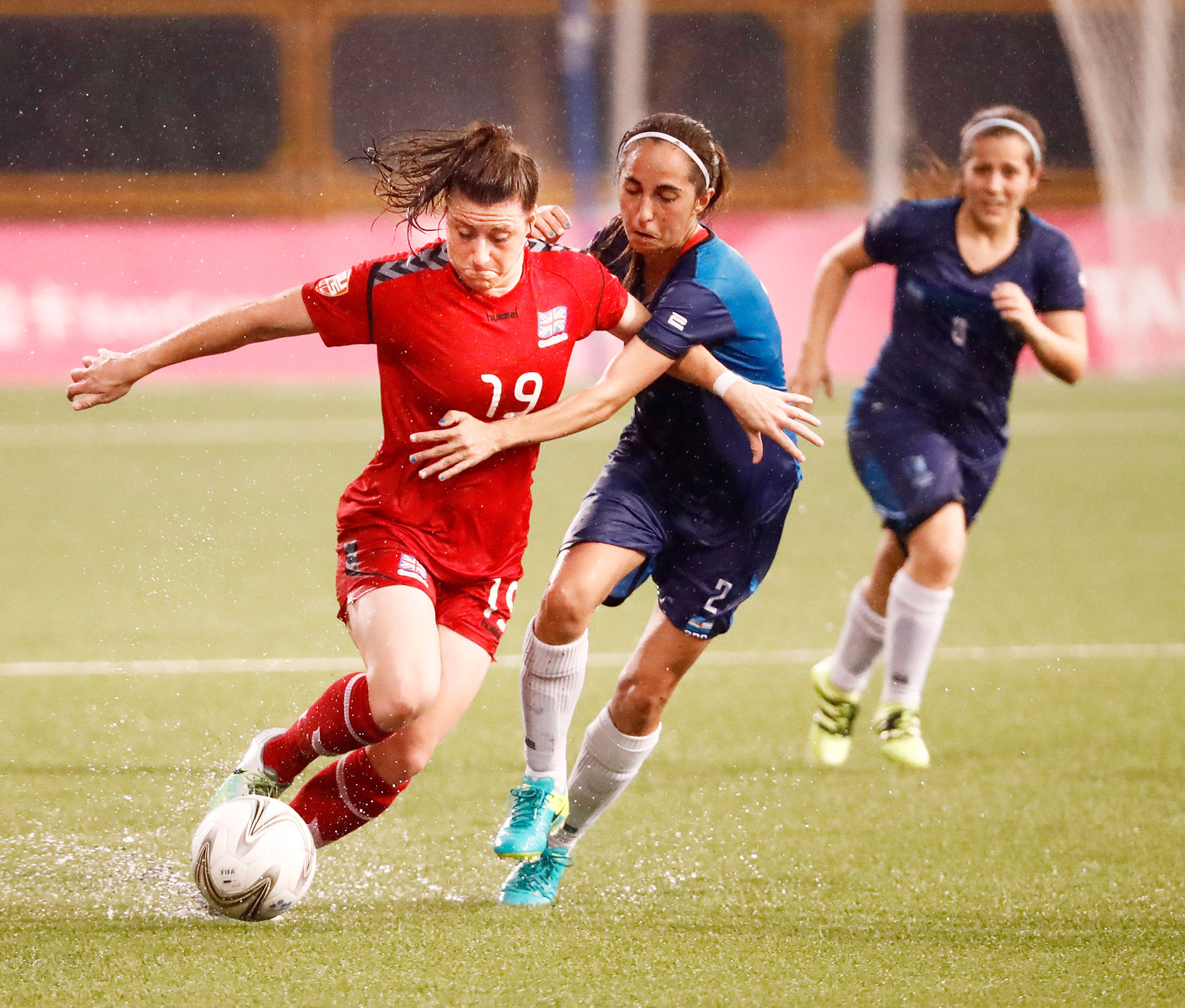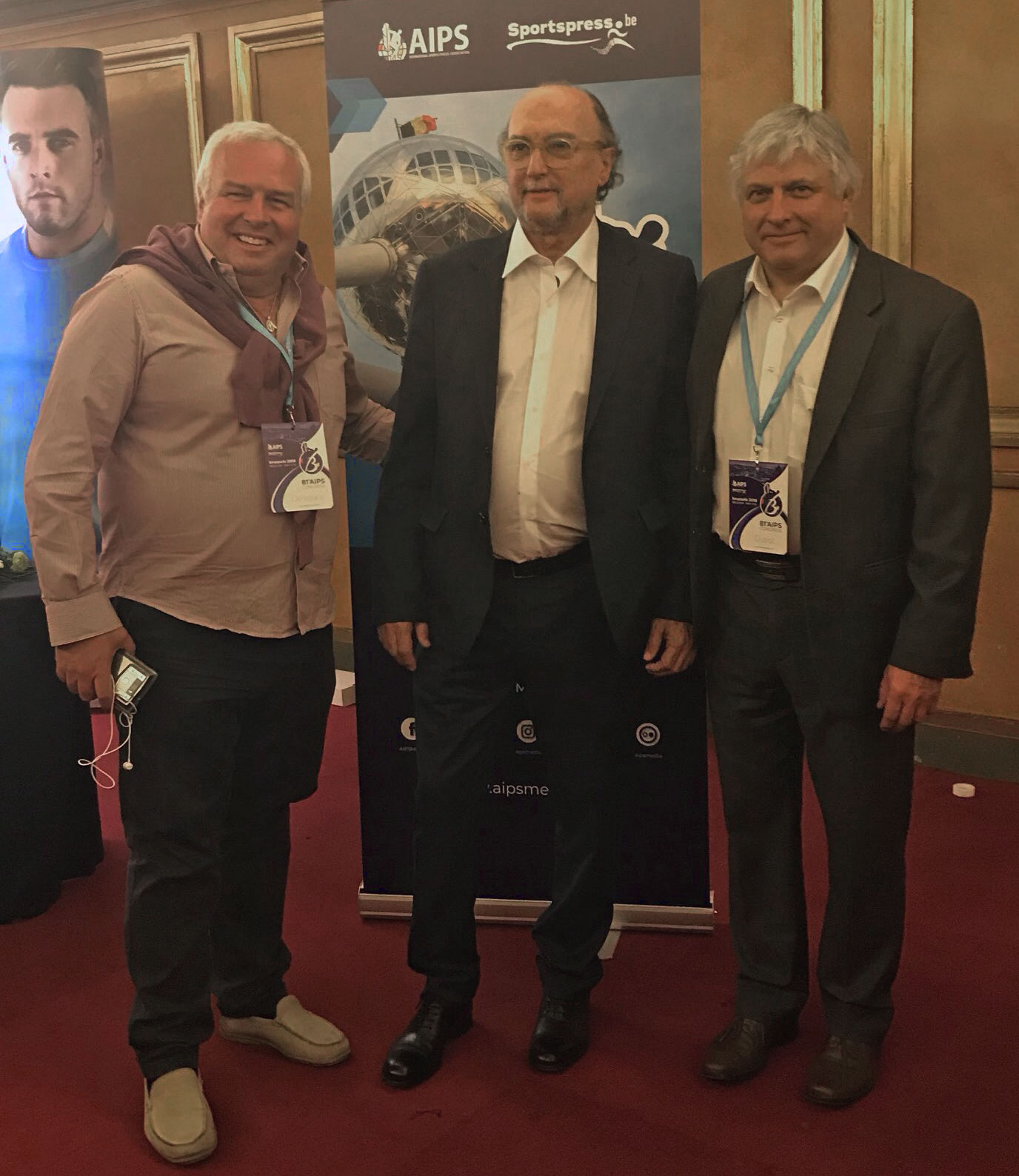 The AIPS 81st Annual Congress © AIPS
The AIPS 81st Annual Congress © AIPS
BRUSSELS — With the World University Championship season underway, FISU is back in its former home city with over 200 international sports journalists from more than 100 countries alongside to attend the 81st Congress of the International Sports Press Association (AIPS).
The four day event programme, which got underway Monday night, takes direct aim at tackling timely issues and opportunities inside sport media.
The first full day of activities kicked off with the Summer Universiade 2015 city of Gwangju presenting their plans to deliver another first-class major sports event, this time the FINA World Championships. Much as how hosting the Summer Universiade 2013 set up Kazan, Russia to hold the FINA World Championships two years later, the Summer Universiade event has also left a lasting legacy in Gwangju. It’s a heritage they are capitalising one by attracting other leading sports events.
 The Dream Together Scholarship is a legacy education programme from the Gwangju 2015 Summer Universiade
The Dream Together Scholarship is a legacy education programme from the Gwangju 2015 Summer Universiade
Presentations and discussions on digital innovation in the sports media field had centre stage during the Tuesday programme. FIFA brought these talks from the press rooms and stadium sidelines onto the football pitch as the world governing body for football presented the federation’s use of video assistant referees (VAR). Some recent controversies aside, FIFA said that using video replay technology to review goals, penalty kicks and direct red card incidents is a game-changing improvement for the world’s number one played game.
The FIFA presentation on VAR technology was led by Massimo Busacca, Director of FIFA Refereeing. He was joined on-stage by Johannes Holzmuller, FIFA’s Head of Football Innovation Department.
Mr. Busacca assured the crowd of journalists that the use of VAR will be a positive surprise this summer at the 2018 FIFA World Cup Russia. “People who think that technology will replace referees is completely false,” Mr. Busacca said. “It takes the intelligence of the individual to use the technology. A machine is there to help; it’s not a substitute.”
 Football action from the Taipei 2017 Summer Universiade. Football has been part of FISU events since debuting in Galicia, Spain in 1966.
Football action from the Taipei 2017 Summer Universiade. Football has been part of FISU events since debuting in Galicia, Spain in 1966.
With social media apt to go into meltdown mode after a missed call in major sports events, having up to 35 camera angles to review key calls during the flow of the game has obvious benefits. Both presenters went into exacting detail about how referees were trained to use this technology to maximum benefit.
“A single decision can change the career, for the player and for the referee,” Mr. Busacca added. “In every game, we have a big responsibility to eliminate clear mistakes. While the technology won’t solve all the problems, VAR will be a positive surprise at the World Cup.”
 FISU Secretary General-CEO Eric Saintrond (right) with two titans of Italian sports journalism, Gianni Merlo (centre) and Gianfranco Coppola (left)
FISU Secretary General-CEO Eric Saintrond (right) with two titans of Italian sports journalism, Gianni Merlo (centre) and Gianfranco Coppola (left)
Another definite highlight during day two of the Congress was a panel discussion on how journalists and media outlets can stay relevant in the digital age. The panel was led by La Gazzetta dello Sport journalist and AIPS President, Gianni Merlo. He was joined on stage by the editor-in-chief for the Spanish sports daily Marca, Juan Ignacio Gallardo, and the French sports paper L’Equipe’s digital editor-in-chief, Jean-Baptiste Renet, and Getty Images Senior Vice President, Lee Martin.
While all four sports journalists spoke about the changing demands of news — Mr. Merlo began the discussion by quipping, “Before, at the newspaper, after one o’clock, it was over. Today, the deadline is never over,” — they also spoke passionately about the bedrocks tenets of quality journalism, such as transparency, credibility, honesty.
 “We have to be the real news, the real reporter of the truth,” Mr. Merlo said. “This credibility must never change.”
“We have to be the real news, the real reporter of the truth,” Mr. Merlo said. “This credibility must never change.”
The panelists also talked directly about the hard economic realities they faced with their outlets.
“The internet has been like a meteorite that wiped away the dinosaurs,” Mr. Gallardo said. “We reach ten-times the audience we used to, but we face some very hard and very real economic impacts.”
“We need to reach the end of this tunnel alive,” Mr. Gallardo said about the transition traditional media companies. “The paper shouldn’t be left for dead.”
Digital media advances mean expanded storytelling options for journalists, with Mr. Renet saying that L’Equipe journalists are constantly on the lookout for more original angles to report news from.
“This is thrilling,” Mr. Renet said. “We go out and get to combine words and images and videos and graphics in new and innovative ways. But we always have to come back to our core, and that’s quality written journalism.”
By Torin Koos, FISU Media Manager

